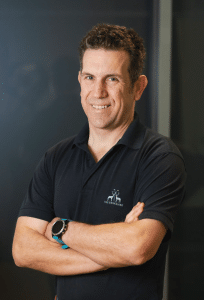Practical guidance on screening for patient psychological vulnerability
Aesthetic plastic surgery is an important area of medical practice. Many people reasonably wish to optimise their appearance through surgery. It is to be celebrated that the dedication of aesthetic plastic surgeons means that more patients can achieve their desired results more safely.
Most patients do not have any particular psychological vulnerability at the time that they seek aesthetic plastic surgery. Sadly, however, some patients do have some form of sub-clinical mental health difficulty, are neuro-atypical, have suffered some form of mental trauma, or have a diagnosable psychiatric condition or personality disorder. In this guidance note we will refer to these categories together as ‘psychological vulnerabilities’. Body Dysmorphic Disorder (BDD) is just one example, although it is a focus of this guidance note. It is impossible to say how many patients are affected by such psychological vulnerabilities, but an article from the American Society for Aesthetic Plastic Surgery (2013, Wildgoose et al) indicated that around 50% of aesthetic plastic surgery patients have psychological issues of some sort.
When patients with psychological vulnerabilities seek aesthetic plastic surgery, they can face additional risks compared to patients without them. For example, there may be an increased risk of disappointment with an objectively good surgical outcome, which in turn could exacerbate their psychological vulnerabilities. Similarly, where there has been a non-negligent complication (or worse, a negligent error), these patients may be less emotionally resilient and more likely to go on to suffer a diagnosable psychiatric injury. In the UK patients are entitled to seek compensation for psychological injury consequent on surgery, and the compensation can be substantial. Some patients may also be vulnerable to misinterpreting normal words, gestures or physical contact from their surgeon and developing feelings of violation.
In turn, their surgeons can face additional risks of litigation or regulatory action, or even police investigation.
Therefore aesthetic plastic surgeons need to know how they can effectively screen their patients for psychological vulnerabilities, and BDD in particular, and how they can properly advise and protect such patients (and in turn themselves).
Professor Veale’s Webinar for Incision Members
Incision identified this area as an important topic for education and training for Members who perform aesthetic procedures. Incision arranged a very well-received training webinar for Incision members, by an expert, Professor David Veale (Professor David Veale – Consultant Psychiatrist in London), a Consultant Psychiatrist in London specialising in Cognitive Behaviour Therapy for obsessive compulsive disorder (OCD), body dysmorphic disorder (BDD), health anxiety, emetophobia and depression.
A complete recording of his excellent webinar is available to Incision members. Continue reading
Webinar Recording – The GMC and legal requirements in cosmetic surgery (Dec 2021)
Webinar Recording – Should you proceed with a cosmetic procedure? Professor David Veale (Nov 2021)



